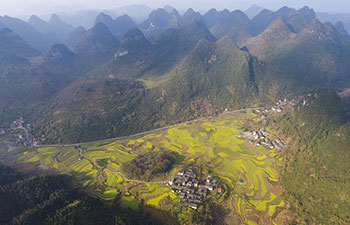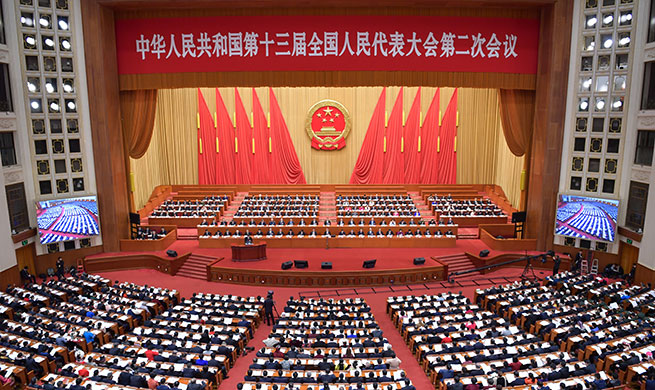NAIROBI, March 12 (Xinhua) -- The United Nations Environment Program (UNEP) on Tuesday called for urgent action against resource extraction to save the world from depletion that it says has tripled since 1970.
The UNEP, in its Global Resources Outlook 2019 report, attributed the increased climate change and biodiversity loss to increases in the extraction of materials.
"The situation is likely to worsen unless the world urgently undertakes a systematic reform of resource use," Janez Potocnik, co-chair of UN International Resource Panel that compiled the report, told journalists in Nairobi during its launch on the sidelines of the fourth session of the UN Environment Assembly.
Potocnik noted that people in public offices must go out and defend the public interest by safeguarding natural resources.
He said that there is need to look at natural resources as a marketing and beneficial resource system or else the countries should not expect development.
"Resources in developing countries are critically endangered as uses of resources continue to grow higher than the economic growth," he added.
The report notes that since 2000, growth in extraction rates have accelerated to 3.2 percent per annum, driven largely by major investments in infrastructure and higher material living standards in developing and transitioning countries, especially in Asia.
It says that biomass use increased from 9 billion tons in 1970 to 24 billion tons in 2017, mostly for food, animal feeds and energy.
The report warns that from 2015-2060, natural resource use is expected to grow by 110 percent, leading to a reduction of forests by over 10 percent and a reduction of other habitats like grasslands by around 20 percent.
"The implications for climate change are severe, as there would be an increase in greenhouse gas emissions of 43 percent," it says.
According to the report, over the past five decades, the global population has doubled and global domestic product has increased four times.
The report finds that annual global extraction of materials grew from 27 billion tonnes in 1970 to 92 billion tonnes in 2017.
"The extraction and processing of materials, fuels and food make up about half of total global green gas emission and more than 90 percent of biodiversity loss and water stress," the report adds.
It says that by 2010, land use changes had caused a loss of global species of approximately 11 percent.
The report says that if economic and consumption growth continue at current rates, far greater efforts will be required to ensure positive economic growth does not cause negative environmental impacts.
"What is needed is a move from linear to circular flows through a combination of extended product life cycles, intelligent product design and standardization and reuse, recycling and remanufacturing," the report says.













